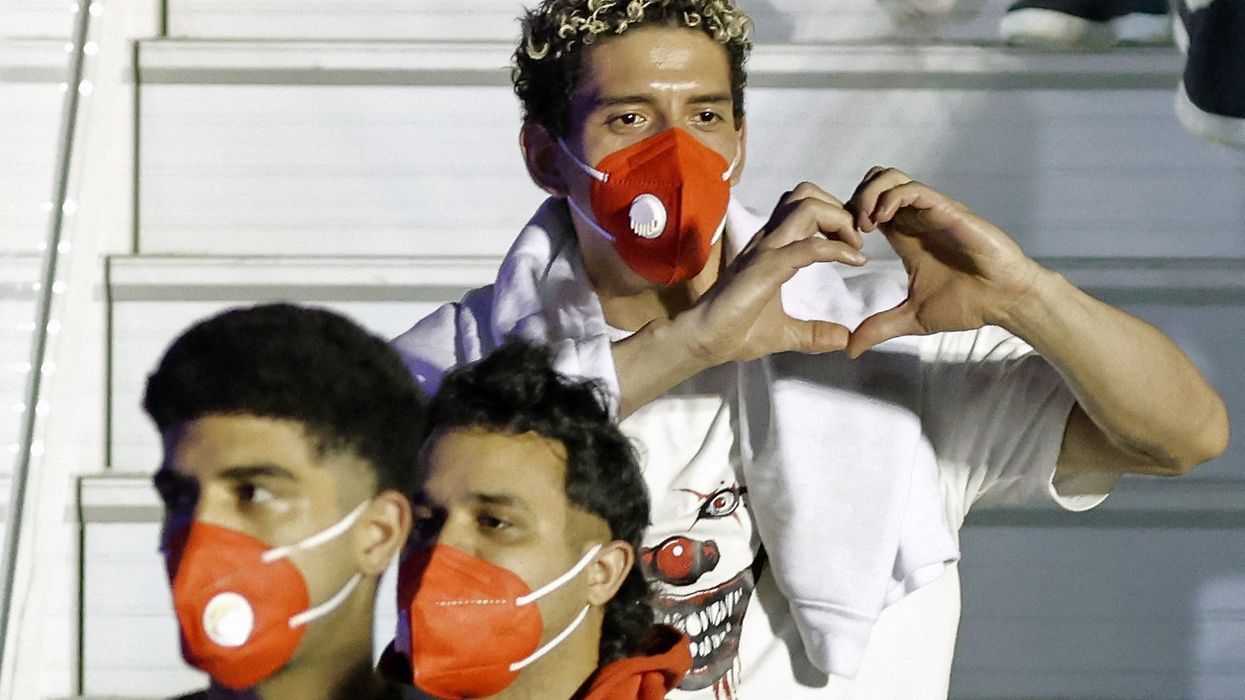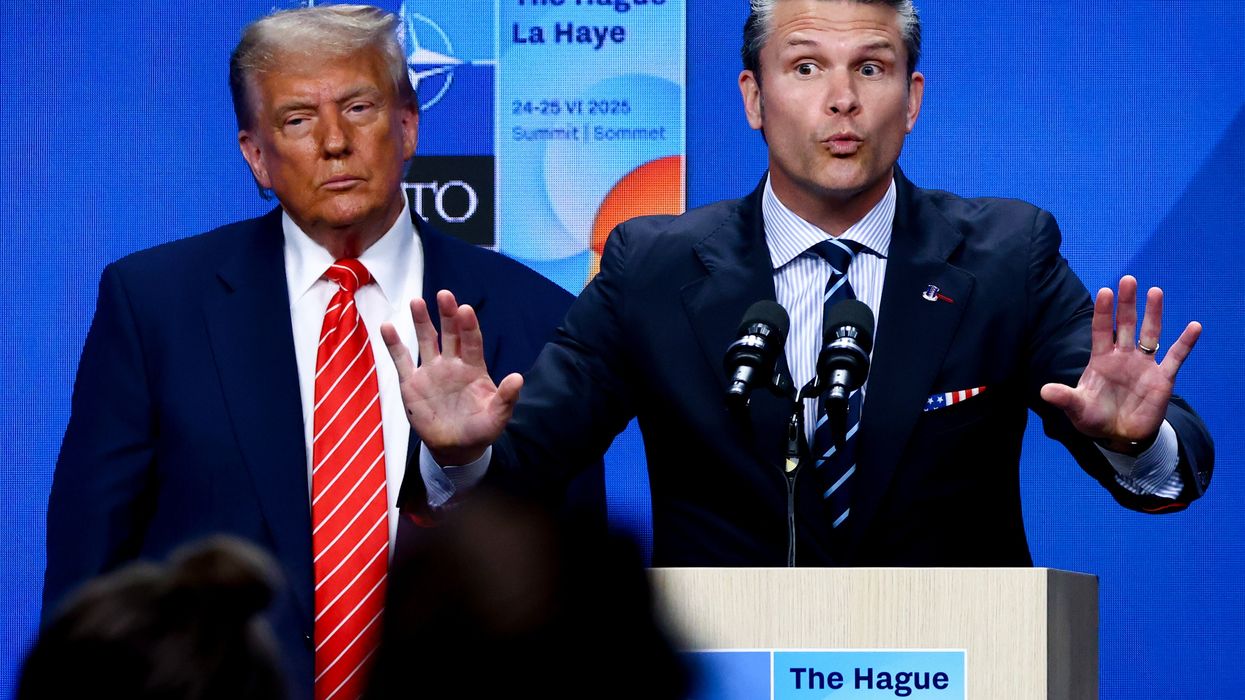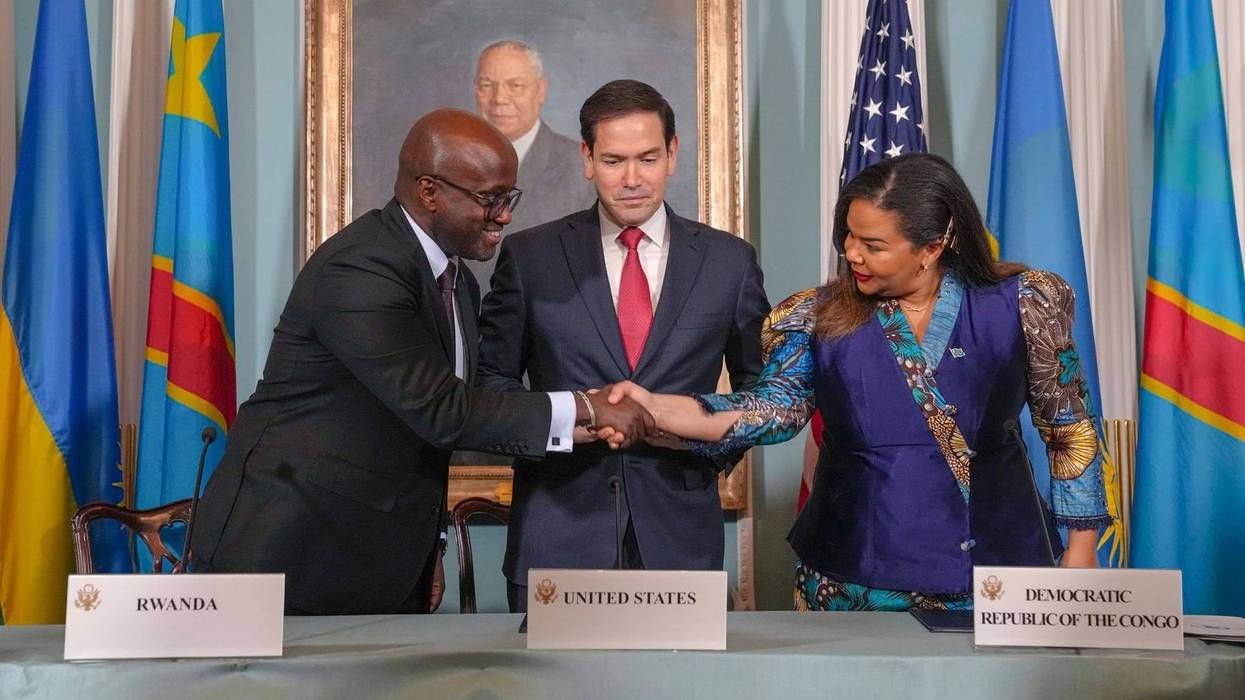80 Years After Hiroshima and Nagasaki, Are We on the Verge of Another Nuclear War?
With escalating military confrontations today—even the possibility of a World War—how long can “deterrence” work?
Eighty years ago, the U.S. dropped nuclear bombs on the civilian populations of Hiroshima and Nagasaki. There are now nine nuclear-armed nations, many in military confrontation with one another. It is quite remarkable that there has not been another nuclear war. How can this be explained?
Some say the absence of another nuclear war proves that nuclear “deterrence” is working, and to some extent that is true. These nations are rightfully afraid of a nuclear conflagration, which could obliterate their societies, and even destroy all life on planet Earth. With escalating military confrontations today—even the possibility of a World War—how long can “deterrence” work?
“So Far, So Good…”
“So far so good” is probably the faintly hopeful refrain heard from many who feel helpless to undo the nuclear danger. This is reminiscent of the cartoon of the man falling from the top of a building. As he passes each descending floor, he proclaims, “So far, so good…”
In reality, a fair amount of luck has helped humanity avert nuclear catastrophe until now. We came very close during the “Cuban Missile Crisis.” A political officer on a Russian submarine that was out of communication and uncertain if a nuclear war had already begun called off a missile launch at the last minute. Another Russian military technician, suspicious of an errant radar reading that appeared to show incoming U.S. missiles, called off another imminent nuclear strike. It could just as easily have gone the other way.
Many experts worry that it will be an accidental nuclear launch that ends us. This is all the more concerning as Artificial Intelligence is applied to nuclear weapons on hair-trigger alert, decreasing the decision-making time to split seconds, and removing human oversight. What could go wrong?
Never Again?

2025 also marks 80 years from the end of World War II and the defeat of the German fascists by Russia, the United States, and the European Allies. Eighty years since Russian and U.S. troops liberated thousands of skeletal prisoners from German concentration camps, much to the horror of the world, which reacted with calls of “Never Again!”
But wait, don’t we have concentration camps now in the U.S.? Isn’t that why Immigration and Customs Enforcement (ICE) now has a larger budget than many national militaries, and larger than the entire current federal prison system? They are building concentration camps for undocumented workers, whom they demonize as “murderers,” “rapists,” “gang members,” and “terrorists.” The vast majority of immigrants who have already been violently taken from their jobs and families, imprisoned, and deported have no criminal records whatsoever, and are productive, respected members of their communities.
If you think I am pointing the finger at the U.S. as the “bad guy” who is mostly responsible for the prospect of a civilization-ending nuclear war, then you are reading correctly.
Authoritarianism with distinct overtones of white supremacy is on the rise once again, while craven European politicians clamor for war with Russia and more military spending. What could go wrong?
Israel, purportedly a safe haven for the persecuted Jewish people—a “land without people for a people without land”—is escalating its blatant genocide in Gaza. The images of intentionally starved Palestinian men, women, and children conjure images of emaciated prisoners—mostly Jews—in World War II concentration camps.
Israel Wages Genocide While Threatening Its Neighbors with Nuclear Weapons
Israel is also a nuclear power, although it has long been considered impolite to say so. The United States helped Israel gain nuclear technology and has helped to shield Israel from any nuclear accountability. Israel has not signed the Nuclear Non-Proliferation Treaty (NPT). Its nuclear arsenal is not inspected by the International Atomic Energy Agency (IAEA), which the U.S. weaponized to support its rationale for war against Iraq, Syria, and Iran. The IAEA announced a resolution critical of Iran’s nuclear program on Thursday, June 12, the day before Israel’s attack on Iran. Coincidence? Probably not. Like so many other international bodies, the IAEA has been subverted to serve U.S. and Israeli war aims.
Unlike Iran, Israel actually has nuclear weapons. Will they use them against Iran? The Israeli government of right-wing extremists has already shown us the depths of depravity they are willing to go. Furthermore, all their Arab neighbors know Israel is the only nuclear-armed nation in the Middle East.
Daniel Ellsberg, author of The Doomsday Machine: Confessions of a Nuclear War Planner, reminded us that “nuclear weapons are used every day. They are like a gun you point at somebody’s head.”
Aside from “luck,” it has been nuclear arms treaties that have held nuclear war in check. In recent years, however, the U.S. has shredded most of these treaties and missed many opportunities for peace:
- Former President Ronald Reagan rejected Soviet President Mikhail Gorbachev’s offer for both countries to eliminate all their nuclear weapons if the U.S. would stop deployment of a “Star Wars” missile defense system in space.
- Former President Bill Clinton refused Russian President Vladimir Putin’s offer to cut our massive nuclear arsenals to 1,500 bombs and to call on all of the other nuclear-armed states to negotiate the elimination of all nuclear weapons, in exchange for the U.S. not placing missile sites in Romania.
- Former President George W. Bush walked out of the 1972 Anti-Ballistic Missile (ABM) Treaty and put a missile base in Romania. President Donald Trump placed another missile base in Poland.
- Former President Bush in 2008 and former President Barack Obama in 2014 blocked any discussion of Russian and Chinese proposals for a space weapons ban in the consensus-bound United Nations Committee for Disarmament in Geneva.
- President Obama rejected President Putin’s offer to negotiate a treaty to ban cyber war.
- President Trump pulled the U.S. out of the Intermediate-Range Nuclear Forces (INF) Treaty.
- President Trump withdrew from the Iran Nuclear Deal, and placed sanctions on Iran.
- From President Clinton through President Trump, the U.S. has never ratified the 1992 Comprehensive Test Ban Treaty, which was ratified by Russia has ratified.
Taken in their totality, these U.S. moves constitute an attempt to gain nuclear superiority, including the possibility of launching a First Strike nuclear attack. Pulling out of the ABM and INF treaties, in particular, indicate U.S. intentions to threaten Russia with nuclear war.
Is it any wonder that Russia, faced with the prospect of the U.S.-North Atlantic Treaty Organization troops and nuclear weapons systems stationed on its border with Ukraine, felt compelled to take military action? Now Russia is stuck in a bloody war that has been constantly escalated by the U.S., which has rejected multiple opportunities for peace talks since the war began. Russia asked for neutrality for Ukraine and respect for the rights of Ukraine’s Russian-speaking populations. Over 1 million casualties later (both sides), the bloody trench-and-drone war drags on, not because of Russian intransigence, but because of the aggressive U.S. policy of “full-spectrum dominance” in every corner of the globe.
Drone Attack on Russia’s Strategic Bombers Tempted Nuclear War
On June 1 of this year, a U.S.-supported Ukrainian drone attack on nuclear bombers in Russia almost triggered a nuclear war. According to a Russian general who spoke with former Central Intelligence Agency (CIA) geopolitical analyst Larry Johnson, the world was even closer to nuclear war than during the Cuban Missile Crisis. The Russian bombers were openly visible on the tarmac, in accordance with the New START Treaty, which is designed to prevent a nuclear-first strike by either Russia or the U.S. This last remaining nuclear arms control treaty between the U.S. and Russia is due to expire this coming February. But it already has been drone bombed.
News Flash! President Trump just posted on his Truth Social account that he is sending two nuclear-armed submarines closer to Russia. Why? Because he didn’t like something that Russia’s Dmitri Medvedev said on social media. What? Trump is scoring pissing points by playing with nuclear weapons? A narcissistic psychopath has his hand on the nuclear button. This is all the more reason to push for an end to the president’s sole authority to launch a nuclear war.
To round out this bleak report, we must at least mention that the U.S. is planning for war against China. The United States is openly planning to wage a war against China—some say as soon as 2027. Why? Because China’s remarkable revolution from extreme poverty to becoming a prosperous global powerhouse is something that the U.S. ruling class (or “deep state”) will not accept. So China will not be attacked because of its military aggression. Even as the U.S. wages perpetual war on multiple countries, China has not been at war with anybody in this century. U.S. complaints about Taiwan are nothing more than an excuse, a trigger for the war that U.S. leaders are determined to wage, at all costs.
The Pentagon Is Planning a Nuclear First-Strike Against China
The Pentagon has figured out that it cannot win a conventional war against China, however. It is planning to use nuclear weapons—an overwhelming first strike or possibly only “tactical nuclear weapons,” those cute little guys that are several times more powerful than what was dropped on Hiroshima.
U.S. war planners recently asked Australia and Japan to declare what military resources they will bring to bear in a war against China. And get this… the U.S. held talks with Japan, of all nations, to discuss how they will coordinate their efforts after a nuclear strike on China. Among the issues they discussed were how they could best manage public opinion after a nuclear war.
It is mostly by dumb luck, however, that we have not all perished in a nuclear Armageddon already.
So if you think I am pointing the finger at the U.S. as the “bad guy” who is mostly responsible for the prospect of a civilization-ending nuclear war, then you are reading correctly. To put it bluntly, the problem is U.S. imperialism. The waning U.S. empire, desperate to maintain its hegemony and expand it, is the elephant in the room. It is buttressed by a very large and powerful military-industrial complex (MIC), the one that former President Dwight Eisenhower warned us about—now on steroids. Ray McGovern of Veterans Intelligence Professionals for Sanity (VIPS), a former CIA analyst himself, has expanded the MIC acronym to MICIMATT (Military Industrial Congressional Intelligence Media Academia Think Tanks). Yes, they are all complicit, not just with genocide in Palestine, but with militarizing and destroying the world. We peace-loving people have our work cut out for us. We are up against a lot.
There is a lot of money to be made from war and militarism. And politicians learn the advantages of justifying war and funding the war machine. The ever-growing Pentagon budget has ballooned to over $1 trillion under Trump, money that will be redirected from the social security net that is being systematically shredded. Spending on nuclear weapons “modernization” alone will cost $100 billion in just the next year (from the budgets of the Pentagon and the Department of Energy).
“The End Is Near”
For decades, peace activists, scientists, and others have been warning us about the “growing danger of nuclear war.” Those sounding the nuclear alarm have been treated like the proverbial fanatic with the sign, “The End Is Near,” or like Chicken Little—“The sky is falling.” It is mostly by dumb luck, however, that we have not all perished in a nuclear Armageddon already. The guard rails have been removed, with the U.S. abrogation of nuclear arms deals. There are very few “adults in the room,” certainly not in the U.S., where neocons who love Israel but hate Iran and Russia have seized the helm. It will take a miracle and a lot of activism to avoid utter disaster in the relatively near future.
Many peoples are already experiencing disaster, what with wars, genocide, extreme poverty, starvation, and the climate crisis—the fruits of corporate greed and militarism. Many people also suffer from the poison of the entire nuclear cycle. There are 15,000 abandoned uranium mines in the Western U.S., many of them on First Nations lands. Radiation contaminates the water, the air, the land, and the people, who suffer from many cancers and radiation-related diseases.
The U.S. Exploded 67 Nuclear Bombs in the Marshall Islands
Then there are the “downwinders” who suffer from the radiation of nuclear bomb testing. Or worse. The Marshall Islands were devastated by nuclear bomb testing. From 1946 to 1958, the U.S. detonated 67 nuclear bombs on this island nation in the middle of the Pacific Ocean. To add insult to injury, their islands are now “sinking” from global warming and rising seas. Many Marshallese, unable to grow food on radiated land and unable to eat the fish from radiated waters, have been allowed to live in the U.S., without citizenship or security, and denied healthcare by many states. There is no cancer treatment facility in the Marshall Islands, and no Veterans Affairs facility for its many veterans of the U.S. military.
We will end this disturbing nuclear tour on a positive note. It has to do with the Marshall Islands. In 1958, four Quaker peace activists bought a sailboat and announced to the world their intention to sail from Los Angeles 4,000 miles into the nuclear test zone in the Marshall Islands to stop U.S. nuclear testing. They were led by Albert Bigelow, a World War II Navy commander who resigned his commission in protest of the U.S. nuclear bombings in Hiroshima and Nagasaki.
The Golden Rule Crew Tried to Stop U.S. Nuclear Testing
Halfway through the voyage, when Bigelow and his intrepid crew pulled into Honolulu, they were arrested and thrown in jail and the Coast Guard seized their boat, named Golden Rule. They never made it to the Marshall Islands, but they succeeded in bringing worldwide attention to the danger of radiation that was floating all over the globe, even getting into mothers’ milk. Opposition to nuclear testing led to the Limited Test Ban Treaty of 1962, signed by then-President John F. Kennedy and the leaders of Russia and the United Kingdom. The treaty banned nuclear testing in the atmosphere, in the water, and in space. Only underground tests were permitted. These days most nuclear testing is done using computer simulations.
The remarkable saga of the Golden Rule continued. The 34-foot ketch was sold and sailed as a pleasure boat by several families to the South Pacific and the Caribbean. Somehow, in 2010 it was found in Humboldt Bay in northern California—a derelict boat that had sunk in a gale and had a big hole in its side. Some locals dragged the beat-up boat onto the beach and planned to make a bonfire of it. When a someone discovered the boat’s legacy, however, local members of Veterans For Peace rescued it and decided to restore it to its original glory.
In June of 2015, after five years of dedicated volunteer labor by veterans, Quakers, and boat lovers, the Golden Rule splashed back into the waters of Humboldt Bay and began sailing up and down the West Coast from British Columbia to Mexico (Ensenada), then to Hawai’i and all around the Hawai’ian islands. Back to California, trucked to Minneapolis, sailed down the Mississippi to the Gulf of Mexico, to Cuba and up the East Coast to Toronto and back to Chicago, a 12-month voyage with a total of 102 port stops. At every stop the Golden Rule and its crew were welcomed excitedly by local peace and environmental activists as well as by state and local officials. Nobody wants a nuclear war!
The Golden Rule Is Sailing Around San Francisco Bay

The historic Golden Rule peace boat sailed last week from its homeport in Humboldt Bay to San Francisco Bay, where it will spend the month of August educating the public about the “growing danger of nuclear war,” and the importance of supporting the U.N. Treaty on the Prohibition of Nuclear Weapons (TPNW). The treaty, supported by an overwhelming majority of countries, went into force in January 2021. It prohibits nations from developing, testing, producing, manufacturing, transferring, possessing, stockpiling, using, or threatening to use nuclear weapons, or allowing nuclear weapons to be stationed on their territory. It also prohibits them from assisting, encouraging, or inducing anyone to engage in any of these activities
Peace at Home, Peace Abroad!
The Golden Rule is a national project of Veterans For Peace, a 40-year-old organization dedicated to exposing the true costs of war; to restraining our government from intervening, overtly and covertly, in the internal affairs of other nations; and to ridding the world of nuclear weapons. At its recent national convention, veterans from U.S. wars in Vietnam, Iraq, Afghanistan, and recent deployments made a united call for opposition to the U.S.-backed Israeli genocide in Gaza and for resistance to racist ICE attacks in our own communities. While calling for the abolition of nuclear weapons, the Golden Rule will be echoing these urgent cries for “Peace at Home, Peace Abroad.”



